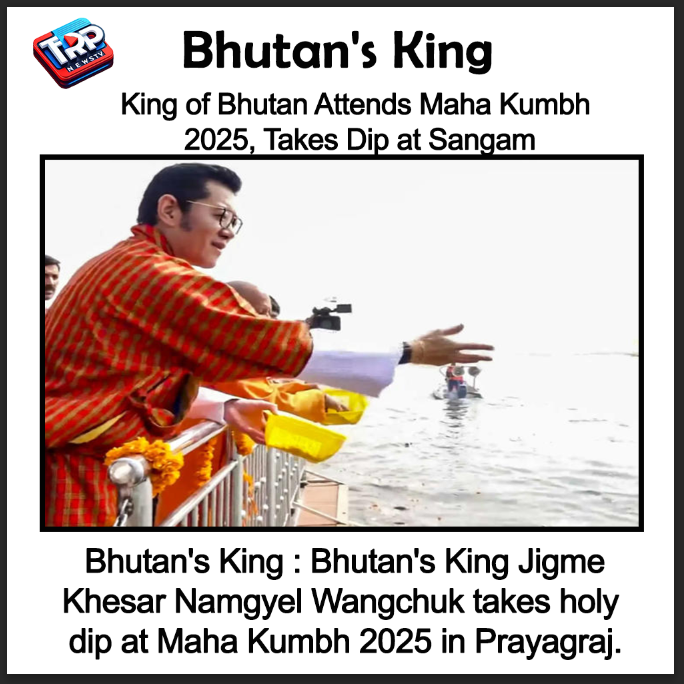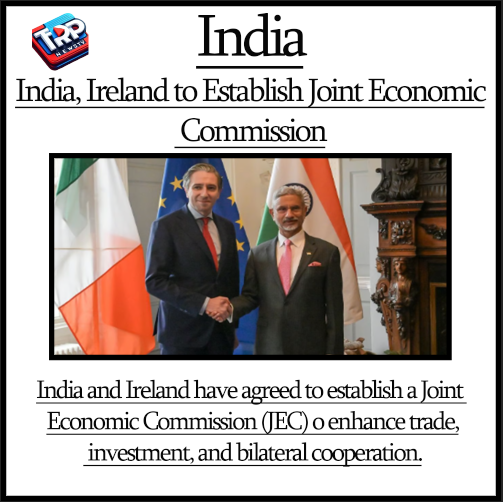
Bhutan’s King : The Maha Kumbh Mela is one of the world’s most remarkable religious events, a spiritual gathering of immense scale held every 12 years in India. In 2025, this colossal festival is being hosted in Prayagraj, Uttar Pradesh, at the Triveni Sangam, the sacred confluence of the Ganges, Yamuna, and the mythical Saraswati rivers. For millions of devotees, it is an occasion to cleanse sins, seek blessings, and deepen their connection with spirituality. It is a pilgrimage that attracts not only millions of Hindus but also global leaders and dignitaries, including King Jigme Khesar Namgyel Wangchuk of Bhutan, who graced the event on February 4, 2025.
Bhutan’s King King Jigme Khesar Namgyel Wangchuk’s Participation in Maha Kumbh Mela
The visit of Bhutan’s King, Jigme Khesar Namgyel Wangchuk, to the Maha Kumbh Mela in 2025 adds an important diplomatic and cultural element to the festival. The King, accompanied by Uttar Pradesh’s Chief Minister Yogi Adityanath, took part in the spiritual rituals, marking a significant moment of international participation in the Mela. One of the most pivotal rituals that King Wangchuk undertook was taking a holy dip in the sacred waters of the Triveni Sangam.
In Hindu tradition, taking a bath at the Sangam during the Maha Kumbh is believed to cleanse one of sins and bring spiritual liberation. This act is seen as a way to transcend the physical world and step into a higher state of spiritual purity. The King’s participation in such a revered ritual speaks to the deep respect and reverence he holds for India’s spiritual practices, as well as the profound ties between Bhutan and India. His immersion in the sacred waters symbolized not just personal devotion but also the strengthening of the cultural and spiritual bonds between the two nations.
Cultural Significance of the Holy Dip
For millions of Hindus, the act of bathing in the Triveni Sangam during the Maha Kumbh is an act of utmost importance. The waters of the Sangam are believed to be purifying, and devotees travel from all over India and the world to bathe in them, seeking divine blessings and absolution from their past sins. The presence of King Wangchuk at this event underscores the universal appeal of spiritual purification and transcendence. It is a powerful reminder that such sacred acts of devotion transcend national borders, inviting people from various cultures, countries, and faiths to unite in a shared moment of reverence and reflection.
By partaking in these sacred rituals, the King also contributed to the broader message of the Kumbh Mela — that it is a space where diverse people come together to seek divine blessings, uphold values of peace, and practice compassion. This spirit of inclusion and mutual respect resonates strongly with the cultural ethos of both Bhutan and India.
Diplomacy and Cultural Exchange Through the Maha Kumbh
King Wangchuk’s visit to the Maha Kumbh Mela is a prime example of how religious and cultural festivals like this one can play an instrumental role in strengthening diplomatic relations. The participation of international dignitaries such as the King helps foster goodwill and mutual respect between nations. Bhutan and India share a long-standing cultural, spiritual, and political bond, and the King’s visit further deepens these ties. This visit also provided an opportunity for Bhutan to showcase its rich spiritual heritage to the world while embracing the shared traditions of India.
Maha Kumbh is a celebration not only of faith but also of cultural exchange. By attending the festival, the King of Bhutan has brought attention to the cultural interconnectedness that exists between neighboring nations in South Asia, underscoring the significance of shared rituals, values, and spiritual practices. Such gestures play a pivotal role in fostering understanding and cooperation, paving the way for deeper collaboration in various fields, from trade to environmental conservation.
Other Prominent Visitors and Their Contributions
The Maha Kumbh Mela 2025 has attracted several other notable visitors, each adding to the event’s global significance. Indian Union Home Minister Amit Shah, for instance, took a holy dip at the Triveni Sangam on January 27, 2025. His participation, along with several top religious leaders, emphasizes the political significance of the Kumbh Mela and its role in uniting people across different strata of society.
In addition, the Vice President of India was also present to participate in the rituals, reinforcing the national importance of the event. Business tycoons such as Anil Ambani and Gautam Adani made their presence known as well, emphasizing the Mela’s transcendent appeal beyond politics and religion. Such diverse participation not only highlights the inclusive nature of the event but also its role as a melting pot for people from all walks of life.
Challenges Faced During the Maha Kumbh Mela
While the Maha Kumbh Mela is a grand and spiritual occasion, it has also faced its fair share of challenges. One of the most serious incidents occurred on January 29, 2025, when a stampede took place during the early hours of the day as crowds surged towards the confluence. Tragically, the stampede led to the loss of at least 30 lives, with many more injured. The tragedy underscored the need for improved crowd management strategies to ensure the safety of millions of pilgrims.
Authorities have since implemented stringent security measures and crowd control mechanisms to mitigate such incidents. These measures include the diversion of routes, no-vehicle zones in certain areas, and enhanced surveillance at key locations. Despite these efforts, the challenge of ensuring the safety of such a massive congregation remains ongoing, and organizers continue to work hard to strike a balance between spiritual practices and public safety.
Conclusion: A Celebration of Unity and Spirituality
The Maha Kumbh Mela 2025 in Prayagraj stands as a monumental testament to India’s rich spiritual heritage. With the participation of King Jigme Khesar Namgyel Wangchuk and other global figures, the festival reinforces its status as a celebration of unity, cultural exchange, and spiritual reflection. The King’s participation exemplifies the power of shared spiritual experiences in fostering peace, understanding, and collaboration across nations.
While challenges persist, the collective efforts of the Indian government, organizers, and devotees aim to preserve the sanctity of this sacred gathering. Ultimately, the Maha Kumbh Mela remains a living example of the enduring power of faith to transcend borders, uniting people in pursuit of purity, peace, and divine connection.






